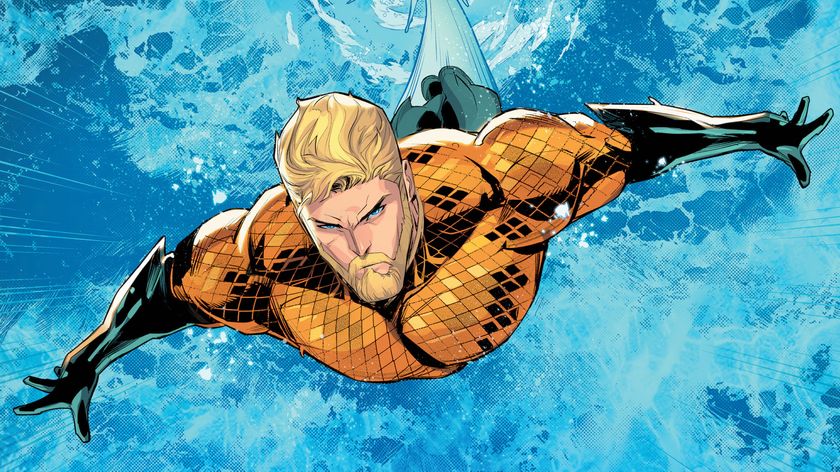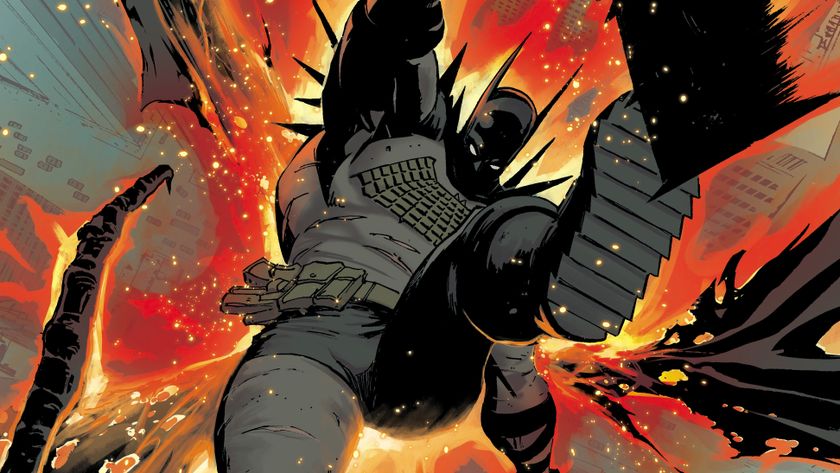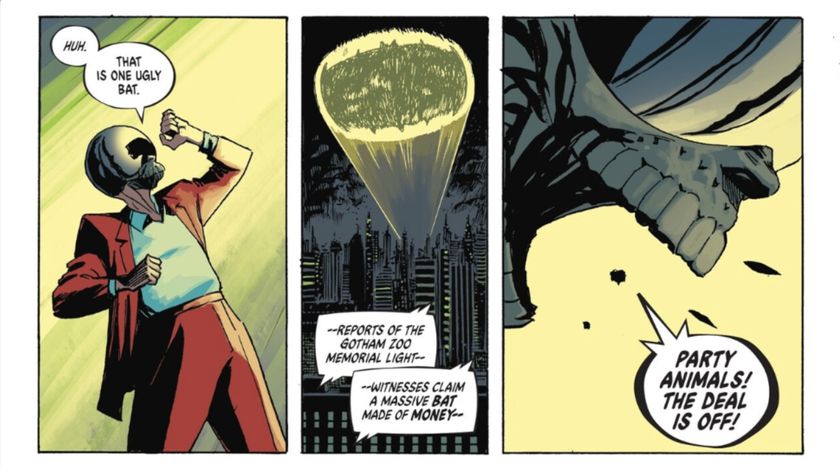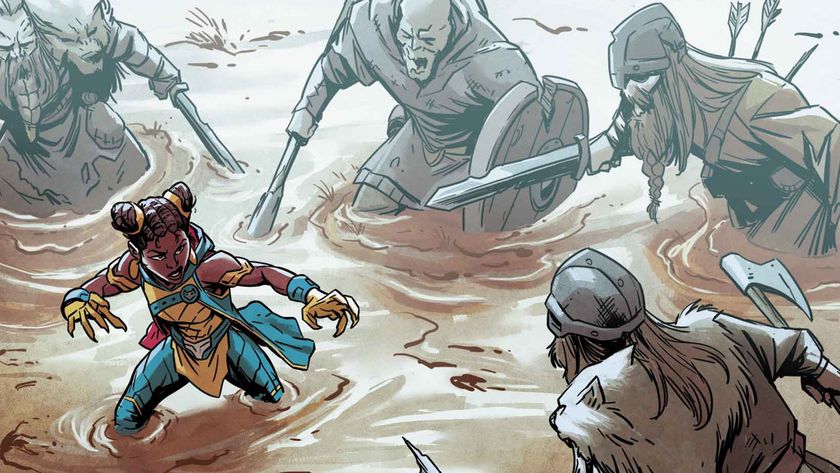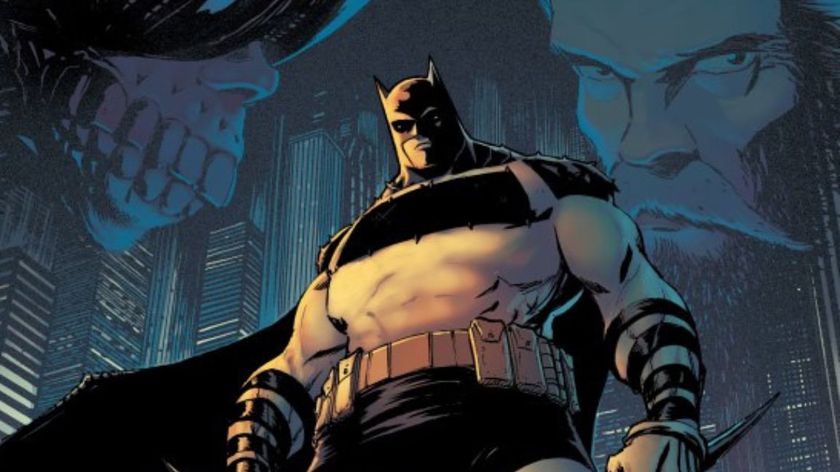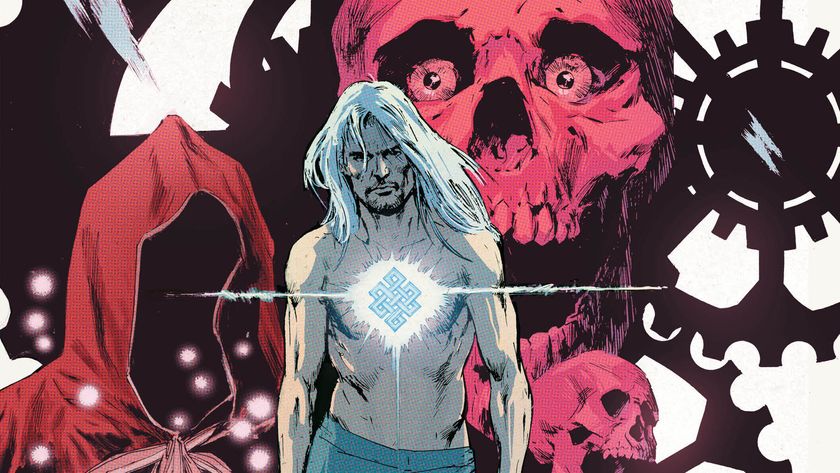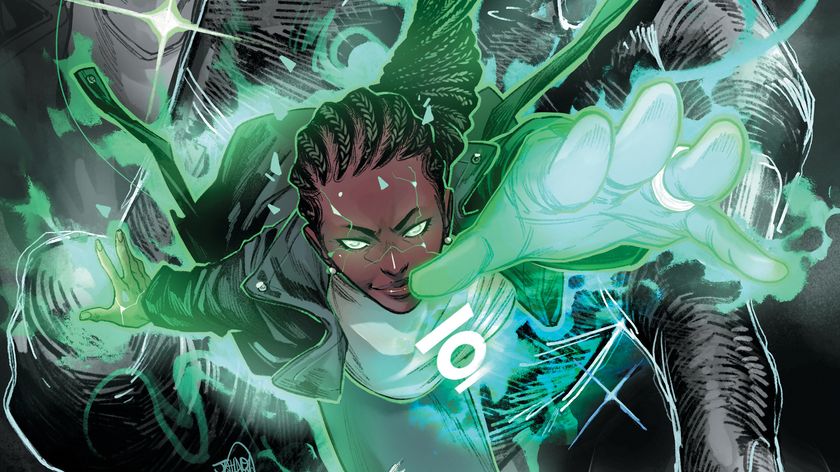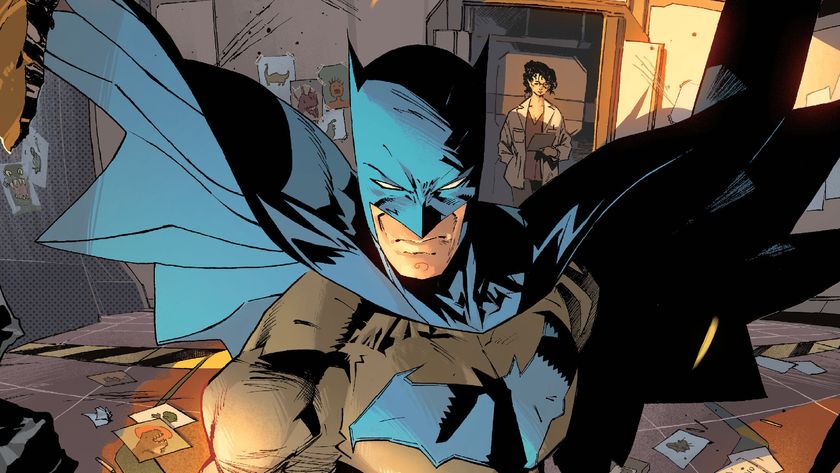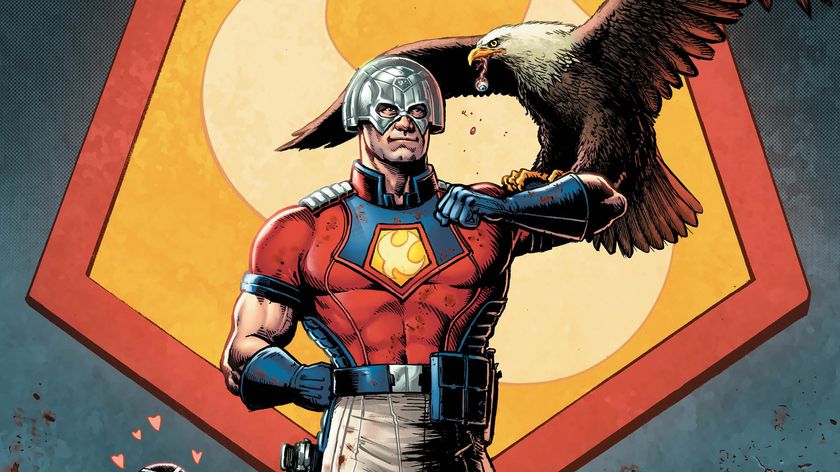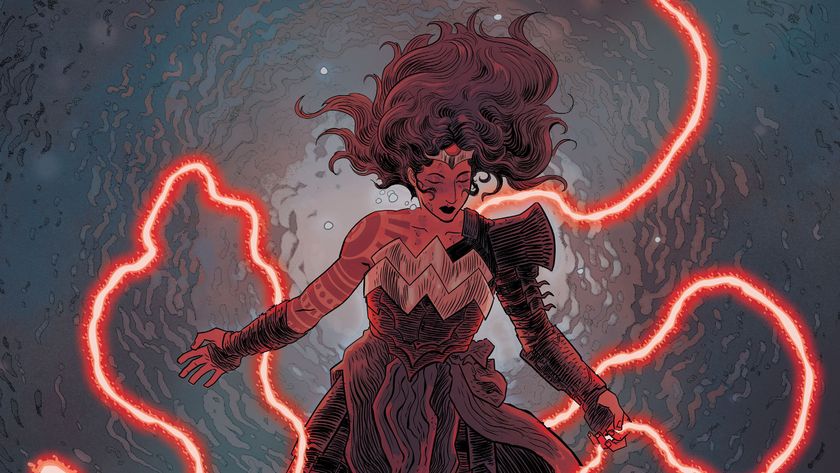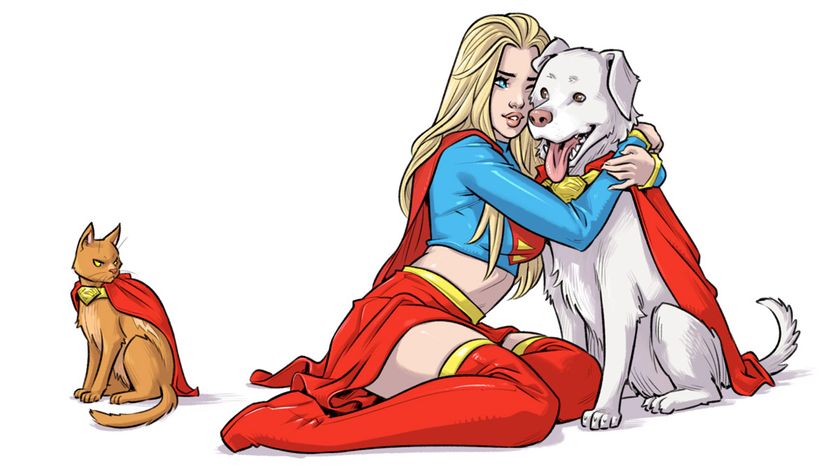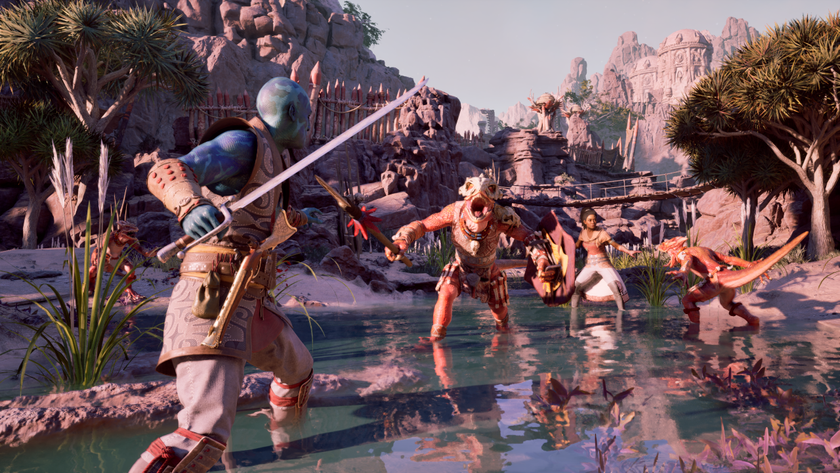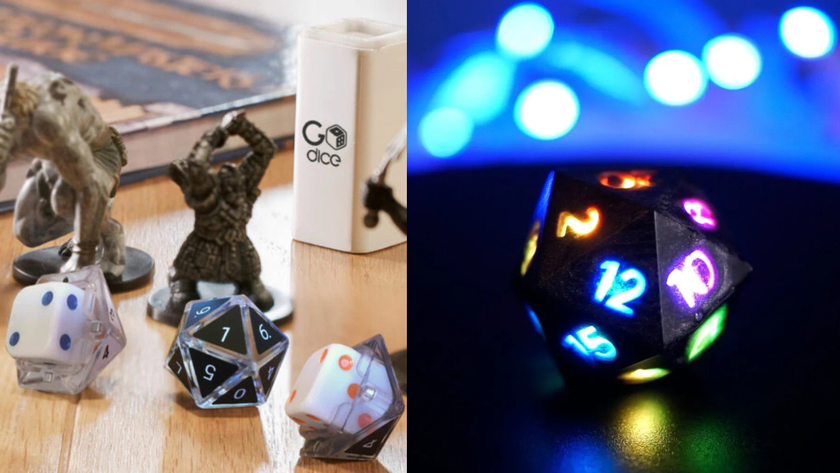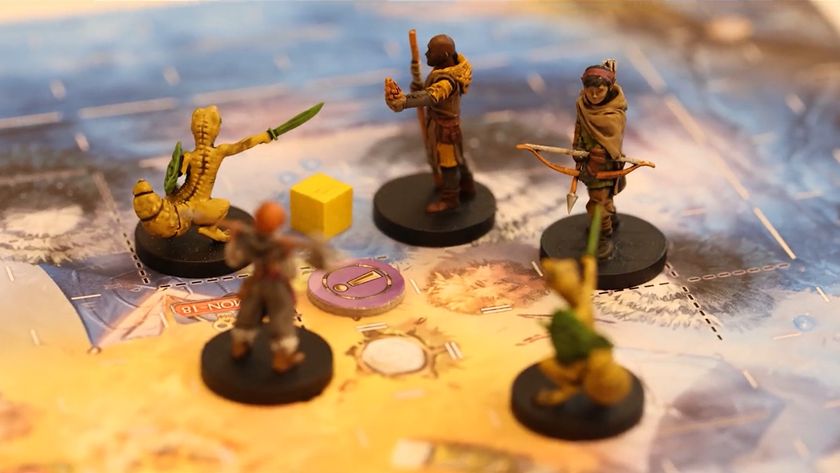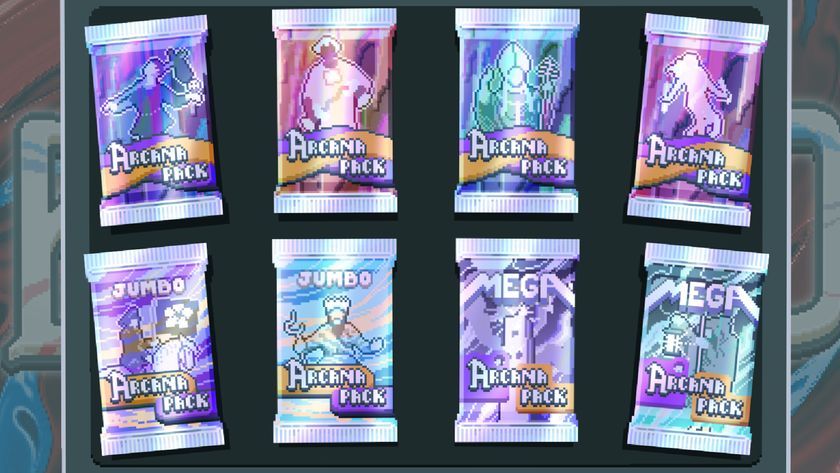We've got questions about why DC's new superhero the Monkey Prince hates superheroes - spoilers
DC's new Asian superhero Monkey Prince hates superheroes, but why?
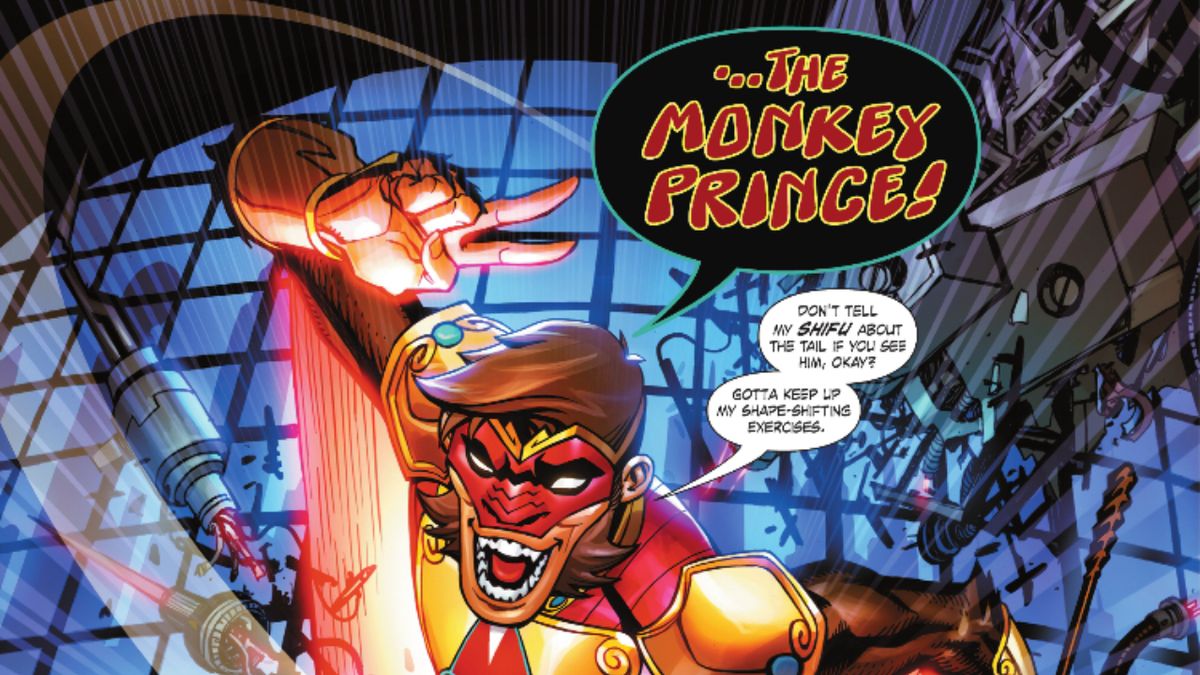
New teen DC hero the Monkey Prince makes his debut in May 11's DC Festival of Heroes: The Asian Superhero Celebration, the publisher's anthology featuring Asian heroes and comic creators.
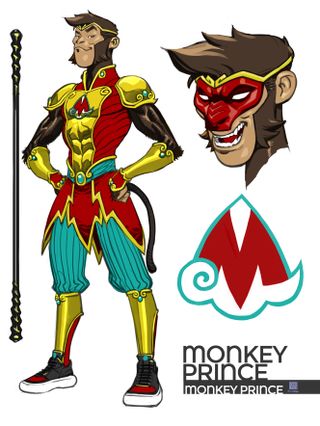
DC seems to have big plans for the character. The publisher singled out his debut in a press announcement weeks ago, and his story anchors the anthology special as its final entry. But DC's plans don't end there. The story ends with the declaration that the adventures of the Monkey Prince will continue "later this year."
The new character was originally the brainchild of DC editor Jessica Chen who wanted to adapt the Chinese mythological character the Monkey King from the 16th-century Chinese novel Journey to the West to comic books. The decision to create the Monkey Prince, apparently the biological son of the Monkey King, was due to a collaboration between Chen, writer Gene Luen Yang, and artist Bernard Chang, all of whom grew up hearing stories about the Monkey King from their parents.
Being steeped in Asian mythology and tradition is already something of a differentiator for the character, but DC is also making it clear it has another trick up its sleeve, found in the title of the story 'The Monkey Prince Hates Superheroes.'
He's a superhero that hates superheroes. "Superheroes sucks," as he puts it. I'm just wondering if I fully understand why. Chen has described the twist as "clever," but I have questions.
Spoilers for 'The Monkey Prince Hates Superheroes'
The 12-page story is a familiar, kinetic superhero introduction story of the teen-hero variety. We're introduced to the Monkey Prince mid-adventure in a face-off with Shazam villain Dr. Sivana along with a couple of seemingly harmless henchmen (henchman and henchwoman, that is… put a pin in that).
You'll have to read for yourself as to why The Monkey King is initially disguised as Shazam (shape-shifting is among his powers) and how Chinese mythology factors into Sivana's plans. But through a lot of snappy, expository dialogue all taking place mid-fight, we learn the Monkey Prince's apparent heritage, are introduced to other elements based in the Monkey King source material like the legendary magical staff Jingu Bang, and meet the Monkey Prince's master/teacher Shifu Pigsy, who looks like a human/pig hybrid with Dumbo ears.
Comic deals, prizes and latest news
Get the best comic news, insights, opinions, analysis and more!
Monkey Prince exhibits extreme confidence that crosses over into arrogance and then into a near-violent tantrum until Shifu Pigsy uses an actual physical restraint device that causes the Monkey Prince pain to snap him out of his rage, which the story subtly indicates is a reoccurring issue.
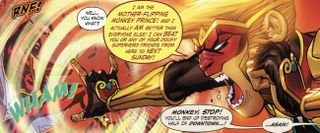
But it isn't until the final pages that all the breadcrumbs dropped in the early pages come together and we seemingly learn why his hatred and resentment of superheroes runs so deep.
Real-name Marcus (yes, he's human when not the Monkey Prince) apparently has trouble making friends and sees himself as something of a social outcast. It remains to be seen if Chen, Yang, and Chang will connect Marcus's social awkwardness to the meltdown he experiences while in his guise as the Monkey King and if there's a larger dynamic at play.
Ironically, the one high school friend Marcus seems to genuinely like is Billy Batson, who unbeknownst to him is Shazam, of course. Perhaps Monkey Prince has a future at the new Teen Titan's Academy, where Billy/Shazam is currently a student?
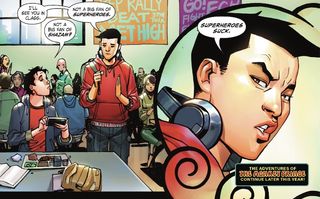
Despite not having a high regard for his peers, Marcus displays great affection for and loyalty to who appear to be his adoptive but unnamed parents ("the best parents in the world") … who also happen to be Sivana's aforementioned henchwoman and henchman.
The story seems to indicate they're freelance henchpeople who only do it to make a living. They express some regret when the plan of sort-of-Sivana (you have to read the story) takes a particularly dastardly turn, and Marcus expresses empathy for how hard it is to make a living when he lets the henchwoman and henchman go to avoid them getting hurt or arrested during the fight. He later explains his parents move around a lot for work.
And it seems Marcus is fully aware it was his parents all along as they appear in their kitchen in the same uniforms they wore during the fight when Marcus returns home from school. However, they don't appear to know he's the Monkey Prince.
So while Marcus seems to have a superhero ethic of right and wrong, his hatred of superheroes is apparently steeped in the conflict that his beloved parents make their living fighting them and/or being endangered by them.
Also left unexplained is why these seemingly kind, caring parents see no other choice but to make a living serving supervillains, and/or why Marcus doesn't confront them about their choices.
So where the Monkey Prince's story goes from here remains to be seen. Will his social awkwardness/bouts of rage be what future creative teams gravitate towards?
Is his deep hatred of superheroes locked in, or just a pragmatic effect of his loyalty to his parents?
Or is this whole concept a group act - will Monkey Prince simply follow his parents from job to job, intervening to keep them from harm's way from other superheroes?
The Monkey Prince's debut is a welcome, promising start albeit with some question marks about how sustainable the 'his parents are supervillain henchmen' dynamic is and whether that's the true and only source of his hatred towards other superheroes.
If Monkey Prince enrolls at the Teen Titans Academy, he'll become part of one of the best teen superhero teams of all time.
I'm not just the Newsarama founder and editor-in-chief, I'm also a reader. And that reference is just a little bit older than the beginning of my Newsarama journey. I founded what would become the comic book news site in 1996, and except for a brief sojourn at Marvel Comics as its marketing and communications manager in 2003, I've been writing about new comic book titles, creative changes, and occasionally offering my perspective on important industry events and developments for the 25 years since. Despite many changes to Newsarama, my passion for the medium of comic books and the characters makes the last quarter-century (it's crazy to see that in writing) time spent doing what I love most.
